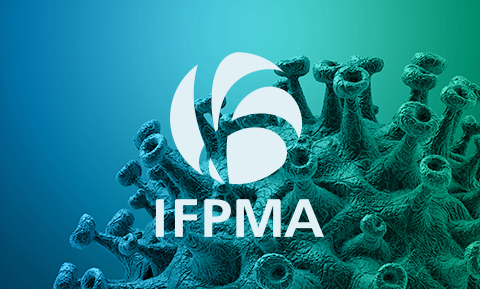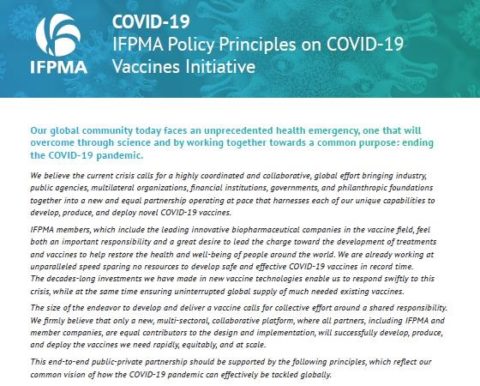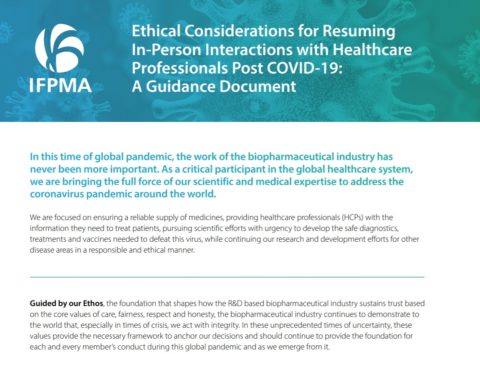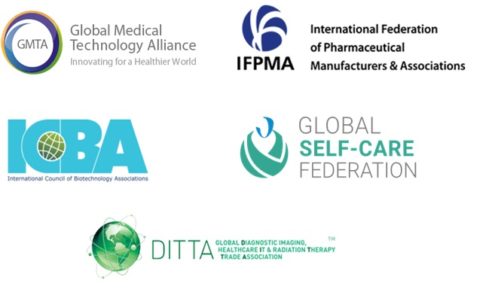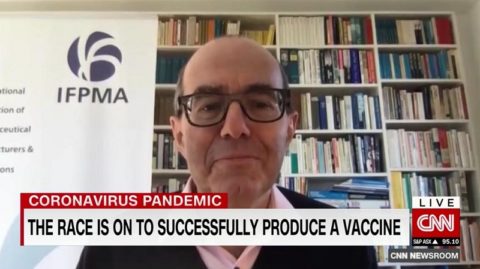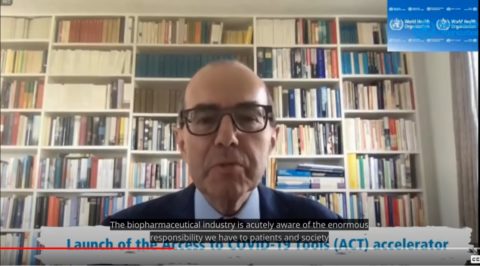Geneva, May 19, 2020: At the Seventy-Third World Health Assembly, IFPMA, the industry body representing the innovative biopharmaceutical industry delivered a joint statement on behalf of the global interests of broad innovative health industries, reasserting that they stand united with governments and global health stakeholders worldwide to combat COVID-19. The biopharmaceutical industry is joined by biotech, self-medication, diagnostic, and medical technology industries committed to the goal of accelerating development, production and equitable global access to safe, quality, effective, and affordable COVID-19 medical products and to ensure that in the fight against COVID-19, no one is left behind.
According to BioCentury, there are nearly 400 potential treatments and vaccines for COVID-19 in development. Much of the current COVID-19 R&D that has been deployed at an unprecedented speed is built upon products, expertise and research capacity that has been refined and developed by the private sector over many years and thanks to an ecosystem that supports innovation, which is underpinned by solid intellectual property rights.
Thomas Cueni, Director General of the IFPMA said: “We understand accelerated development and production of new COVID-19 tools is not enough: we must also ensure equitable global access to safe, quality, effective, and affordable COVID-19 diagnostics, therapeutics and vaccines – making sure no-one is left behind. Biopharmaceutical companies have publicly committed to, and are actively working with, governments, insurers, foundations and international organizations to make future COVID-19 products available and affordable to those that need them”.
As a founding partner of the recently launched ACT Accelerator, IFPMA is rallying around the urgent need for coordinated, inclusive, and multi-stakeholder action as the only possible solution to mitigate the impact of this unprecedented global health emergency, and ensure equitable access to COVID-19 treatments and vaccines.
Thomas Cueni warns that while all eyes are on COVID-19, work to support health systems efforts to meet the health-related SDGs must not be cast aside. He explains: “COVID-19 is cruelly driving home a tough lesson: facing any global health challenge, in particular of such unprecedented scale, requires solidarity and inclusive cooperation. I think there has been a recognition among the broader health community that the industry has reached out, is teaming up and is responding at amazing speed. But at the same time, efforts to ensure essential medicines, vaccines and diagnostics for patients with other life-threatening diseases, must continue”.






